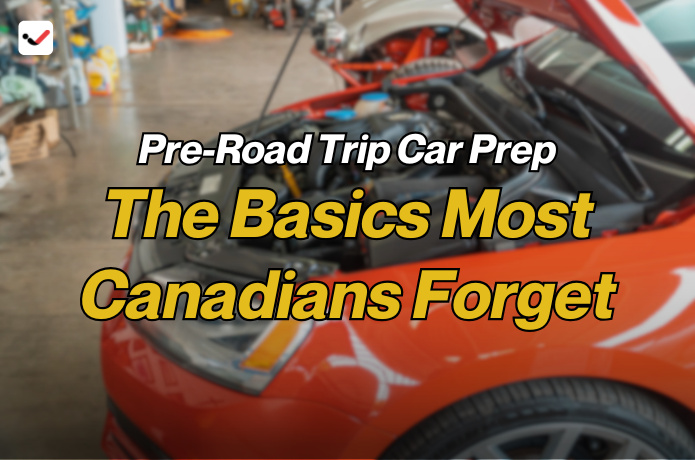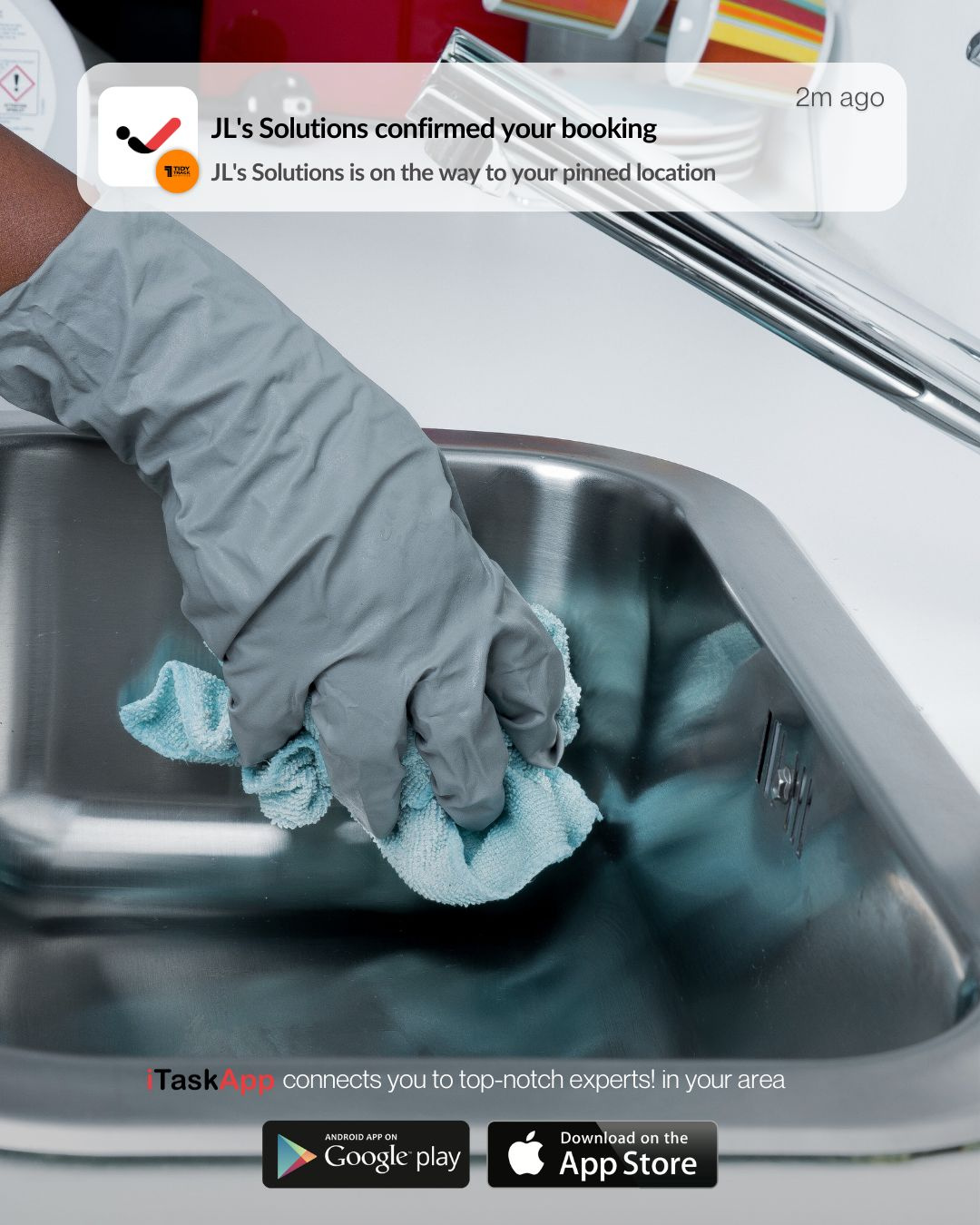Pre-Road Trip Car Prep: The Basics Most Canadians Forget
Pre-Road Trip Car Prep: The Basics Most Canadians Forget

Going on a road trip across Canada can be an exciting way to see new places and enjoy time with friends or family. But if your car isn’t properly prepared, a fun trip can quickly turn into a stressful one. Flat tires, engine trouble, or forgotten documents can delay your plans or even ruin your trip. That’s why it’s important to make sure your car is ready before you hit the road.
Many drivers assume their vehicle is fine if it runs well during daily use. However, long drives and changing road conditions can put extra strain on your car. From the Rocky Mountains to rural roads in Ontario or long stretches in the Prairies, your vehicle needs to be in top shape. This article covers basic but often overlooked steps in car maintenance before a road trip, helping Canadians stay safe, avoid breakdowns, and enjoy the journey.
1. Check Your Tires, Including the Spare
Tires are your car’s only contact with the road, so checking them should always be a top priority. Before a road trip, inspect your tire pressure using a reliable gauge. Under-inflated tires can affect fuel economy and increase the risk of blowouts, especially on highways. Over-inflated tires can reduce traction and wear out unevenly.
Also check for tire wear and tear. Look at the tread depth to ensure it’s still safe—use a toonie as a simple test: if the silver part of the coin isn’t covered by tread, it might be time to replace the tires. Don’t forget your spare tire. Many Canadians forget to inspect it or assume it’s fine. Make sure it’s properly inflated and in good condition.
2. Top Up and Replace Key Fluids
Fluids play a major role in your car’s performance and safety. Engine oil, coolant, brake fluid, transmission fluid, and windshield washer fluid should all be checked. If the engine oil looks dirty or it’s been a while since your last oil change, get it done before your road trip. Clean oil helps your engine run smoothly over long distances.
Coolant keeps your engine from overheating, especially during summer road trips. Brake and transmission fluids are essential for proper handling and gear changes. Lastly, windshield washer fluid is often forgotten, but it’s vital for clear visibility, especially if you're driving through dusty or buggy areas.
3. Test Your Battery and Lights
Your car battery can die without warning, especially if it's older than three years. Visit a mechanic or an auto parts store to have it tested. A weak battery may still work for daily errands but might fail during a long trip or in remote areas.
Also check your headlights, brake lights, turn signals, and interior lights. Make sure they all work and replace any burned-out bulbs. Functional lights are key for visibility and safety, especially if you plan to drive at night or in changing weather conditions.
4. Inspect Belts and Hoses
Belts and hoses are often ignored but are critical to engine performance. Look for cracks, fraying, or leaks. These parts are more likely to fail under pressure during long drives. If you're unsure, ask a mechanic to inspect them for you.
Broken belts can lead to engine failure, while worn-out hoses can cause coolant leaks. Either issue can stop your road trip in its tracks. Checking them now is an easy way to prevent trouble later.
5. Test the Brakes
Your brakes should always be in top condition. If you’ve noticed squealing sounds, shaking, or if the brakes feel soft when pressed, get them checked before you leave. Brake pads wear down over time and should be replaced if they’re thin.
Don’t wait until you're on a steep hill in British Columbia or driving through a busy city to discover your brakes aren’t working properly. Good brakes are essential for safe road travel in all weather and terrain conditions.
6. Pack an Emergency Kit
Even if your car is in perfect shape, emergencies can still happen. A well-stocked car emergency kit can make a big difference if you get stranded. Include items such as a flashlight, jumper cables, a first-aid kit, basic tools, drinking water, non-perishable snacks, and blankets.
In the colder months or for trips through the Rockies or northern Canada, add warm clothing, a shovel, and sand or kitty litter for traction. If you’re traveling with kids or pets, include items for them as well. Being ready for anything is part of smart road trip preparation.
7. Review Your Insurance and Registration
One thing many Canadians forget before a long road trip is to check their car insurance and vehicle registration. Make sure everything is up to date and easily accessible. It’s a good idea to carry both paper and digital copies.
Double-check whether your insurance covers out-of-province travel, especially if you’re crossing into the United States. You should also confirm roadside assistance coverage in case you need a tow or help on the road.
8. Clean and Organize Your Car
A clean and organized car makes for a more enjoyable trip. Remove any clutter from the trunk and cabin to make space for luggage and gear. Check your air filters—if they’re clogged, replace them. A fresh air filter improves fuel efficiency and keeps your car’s interior feeling fresh.
It’s also a good idea to wash your car before the trip. Dirt and road salt can cause long-term damage if left on too long. Cleaning the windows inside and out helps with visibility, especially when driving through unfamiliar areas.
9. Use a Road Trip Checklist
With so many things to remember, a simple road trip checklist can help make sure nothing is forgotten. Include all the basics: tire check, oil change, emergency kit, snacks, maps or GPS, and chargers for your phone. A checklist makes car preparation feel more manageable and helps avoid last-minute stress.
You can also add personal items such as medications, sunglasses, and entertainment. Don’t rely only on your memory—writing it down can save time and reduce the chances of forgetting something important.
10. Plan Fuel and Rest Stops
While not a mechanical issue, planning where to refuel and take breaks is part of smart road trip prep. In remote parts of Canada, gas stations can be few and far between. Always fill up before long stretches and keep an eye on your fuel gauge.
Rest stops give you and your car a break. Stretching your legs, staying hydrated, and giving your engine a pause all contribute to a safer, smoother trip. Try to stop every 2–3 hours, even if only for a few minutes.
Taking the time to do basic car maintenance before a road trip can prevent breakdowns and keep your journey safe and enjoyable. While it might seem like a lot to remember, many of these steps are simple and quick. And when you're cruising through Canada’s beautiful landscapes with confidence, you’ll be glad you took the time to prepare.
Don’t wait until you're halfway to your destination to find out something’s wrong. Use these tips to make sure your car is road-trip ready and enjoy the drive across our beautiful country. Safe travels!

